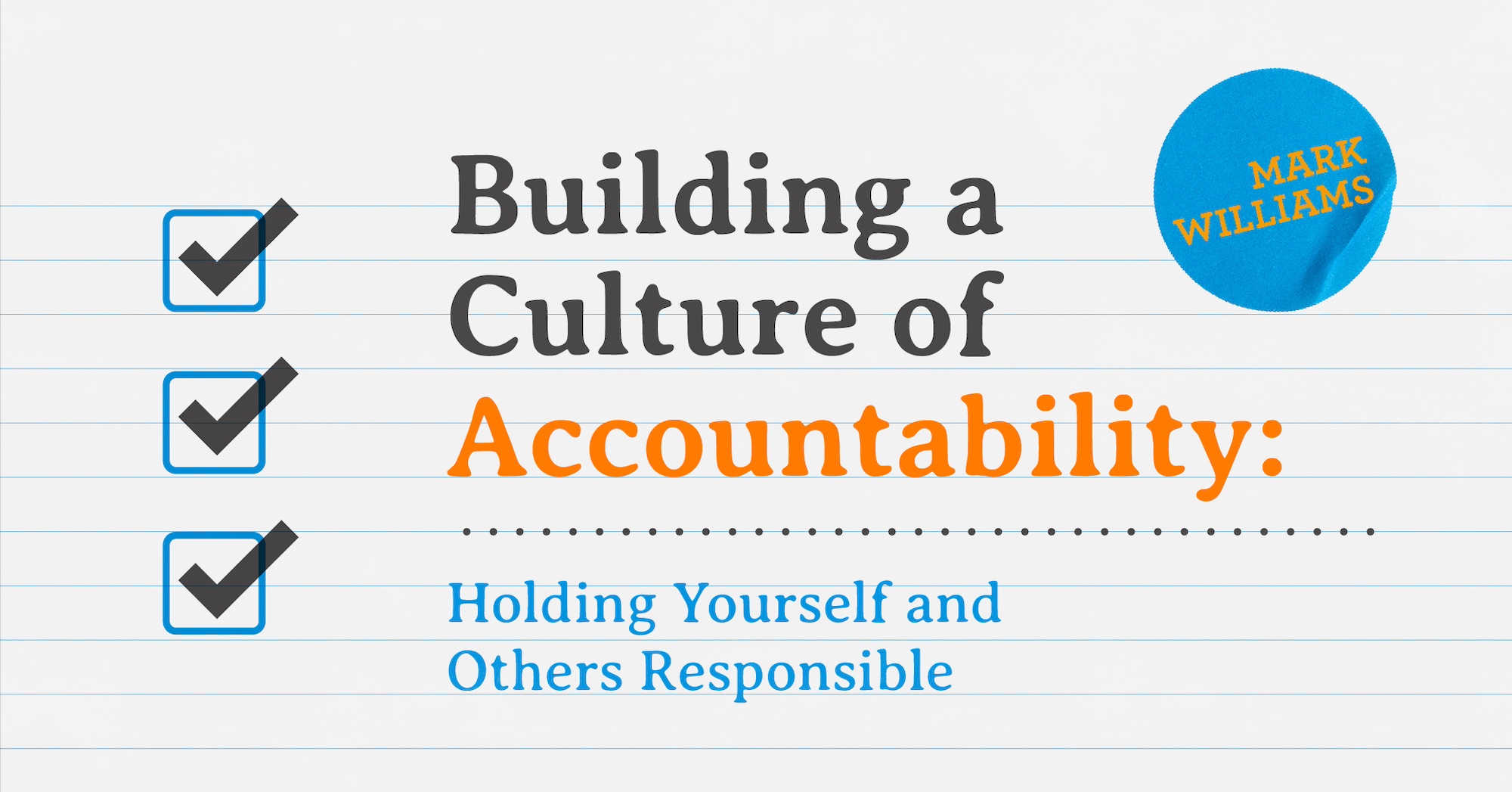Cultivating a culture of accountability is the secret sauce for driving personal excellence and organizational victory. Accountability isn’t just a buzzword; it’s a crucial practice that ensures everyone is responsible for their actions, contributing to a more productive and positive workplace. Let’s explore how to build and sustain this culture by holding ourselves and others accountable.
Personal Accountability
Personal accountability starts with self-awareness and integrity. It’s about recognizing your responsibilities and being answerable for your actions and decisions. This means setting clear goals, maintaining transparency in your work and being honest about your mistakes. When you own up to your errors, you not only learn and grow but also set a powerful example for your colleagues. Remember, accountability is not about perfection but about being proactive and committed to continuous improvement.
To cultivate personal accountability, start by setting clear, achievable goals and regularly reviewing your progress. Use tools like to-do lists or project management software to track your tasks and deadlines. If you find yourself struggling, seek feedback and be open to constructive criticism. Embrace a growth mindset, viewing challenges as opportunities to learn rather than as setbacks.
Holding Others Accountable
Holding others accountable can be challenging but is essential for team cohesion and productivity. It requires clear communication, mutual respect and consistent follow-up. Begin by setting clear expectations from the start. When everyone knows their roles and responsibilities, it becomes easier to hold each other accountable.
One effective way to ensure accountability is through regular check-ins and progress reviews. These meetings provide opportunities to discuss achievements, address any obstacles and recalibrate goals as needed. It’s crucial to foster an environment where feedback is given and received constructively. Encourage a culture of open dialogue, where team members feel safe to express concerns and share ideas.
When someone falls short of their responsibilities, address the issue promptly but tactfully. Focus on the behavior and its impact rather than making it personal. For example, instead of saying, “You missed the deadline,” frame it as, “The missed deadline affected our project timeline. How can we ensure this doesn’t happen again?” This approach promotes problem-solving and improvement rather than defensiveness and blame.
Building a Supportive Environment
Creating a culture of accountability isn’t about micromanaging; it’s about support and empowerment. Provide the necessary resources and training for your team to succeed. Celebrate successes and recognize those who consistently demonstrate accountability. This positive reinforcement builds morale and encourages others to follow suit.
Most importantly, lead by example. When leaders show accountability in their actions, it sets a standard for the entire organization. Be transparent about your own goals and challenges and demonstrate a commitment to personal and professional growth.
Building a culture of accountability involves a combination of personal commitment, effective communication, and a supportive environment. By holding ourselves and each other responsible, we create a more productive, collaborative and positive workplace where everyone can thrive.

